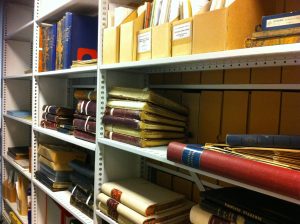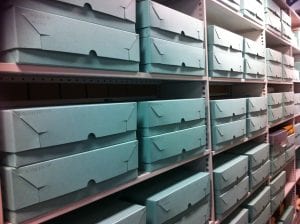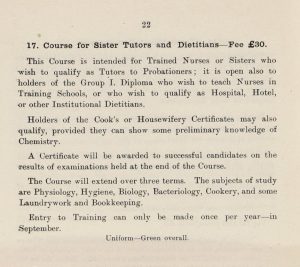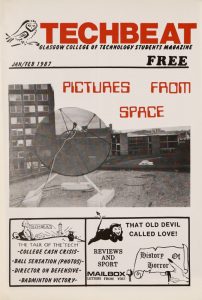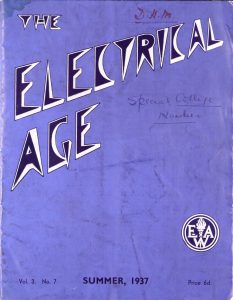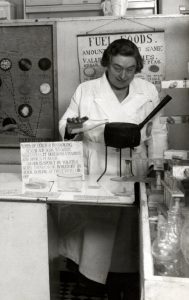Despite the extended character limit now available, Twitter remains a place where nuance remains scarce, with the immediate and readily digestible at a premium. A couple of weeks ago we tweeted this from the GCU Library and Archives account. No doubt it is a striking image; arguably it distills the modern perception of the suffrage movement to its absolute fundamentals – a woman is being literally held by the personification of the law, while contemporary men look on in anger and bemusement. Purely on these terms, the photo is successful.
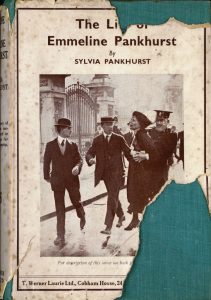
Front cover of ‘The Life of Emmeline Pankhurst’
There is more to it, as an addendum on the book’s back cover notes. It is, I think, worth quoting in full:
‘The illustration on the front of this jacket represents Emmeline Pankhurst, weakened by the hunger and thirst strike, arrested at the gates of Buckingham Palace when the Suffragettes attempted to interview the King on May 21st 1914. The huge policeman gave her a bear’s hug which caused excruciating pain. In her prison cell she suffered for many days.’
These words, written by her daughter Sylvia, give pause. With the benefit of hindsight, it is perhaps easy to fall prey to seeing the success of causes such as women’s suffrage as inevitable – well, of course women were going to get the vote eventually. But think on those words and picture they describe. Someone starving and dehydrated, fifty six years old and aching. The policeman, not gentle, perhaps wanting to make an example. And the men doing nothing but looking on. Continue reading →
